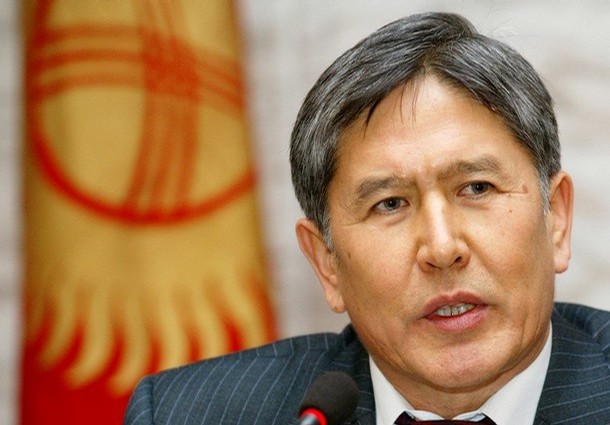
Opposition Selects Presidential Candidate to Stand Against Bakiyev
Publication: Eurasia Daily Monitor Volume: 6 Issue: 78
By:

On April 20, the Kyrgyz opposition announced their candidate to compete with President Kurmanbek Bakiyev in the presidential election in July. After weeks of indecision, the opposition chose Almazbek Atambayev, the leader of the Social Democratic Party (SDP) and former Prime Minister. The two leading opposition parties Ata Meken, led by Omurbek Tekebayev, and the SDP explained their choice of candidate as the opposition’s attempt to unite.
Atambayev’s party is virtually the only credible opposition force within the parliament. The SDP was allowed its place in parliament mostly due to its moderate political strategy. For instance, SDP Members of Parliament were the only ones to question Bakiyev’s February decision to expel U.S. military airbase from Bishkek. Furthermore, for a short period in 2007 Atambayev tried to collaborate with Bakiyev in the role of Prime Minster. Unlike Tekebayev who has a strong anti-Bakiyev agenda, Atambayev has been positioning himself as an opposition leader willing to collaborate with the ruling regime. However, he was sacked following the constitutional reform in October 2007. Earlier this year Atambayev was offered the post of ambassador in Turkey (www.24.kg, February 1).
Although both local and international skeptics question the durability of the Kyrgyz opposition’s wish to unite against the regime, the choice of an agreed candidate does signify a shift in the strategies of Kyrgyzstan’s major political parties. There is a myriad of political leaders, including Tekebayev, who would be eager to compete for the presidency. Indeed, previously both Atambayev and Tekebayev had tried to defeat former president Askar Akayev at the 2000 elections. Both lost to Akayev by a wide margin.
This time, however, opposition leaders seem to be determined to remain united until the election. The pre-election consensus was reached by means of an informal pact amongst the opposition leaders, aimed at changing the constitution and delegating most powers to the parliament and government. Furthermore, a series of political assassinations over the past few months has shown that opponents of the regime face the threat of physical violence against themselves. As one leader of Ata Meken told Jamestown, no opposition leader will be able to constitute a serious challenge to the president without uniting with other opposition forces.
The presidential candidate, therefore, must have sufficient political capital, as well as a strong financial base. Both are needed to contest elections results through mass protests if they are found to be falsified. According to estimates by one opposition leader, a presidential bid will cost a candidate approximately $10 million (interview with Jamestown in March).
Although there might be other popular candidates from the opposition, Atambayev reportedly possesses the necessary financial resources. He has the choice of running in tandem with other opposition leaders, among them Tekebayev and a Member of Parliament from the SDP Baktybek Beshimov -both popular politicians.
In his bid for re-election Bakiyev has promised to stop electricity black outs for the next few months. He also showed some interest in meeting with NGO leaders to discuss current affairs. The president’s new program for economic growth further shows his eagerness to lead a populist campaign.
The Central Elections Commission (CEC) is under strong pressure from the government and will secure favorable results for Bakiyev. CEC has already announced its decision to bar local citizens and NGOs from observing the elections. Furthermore, Bakiyev has been warning the public that international forces seek to intervene in the political processes within the country. Election observers from the CIS are likely to be the only ones allowed to monitor the election.
In the meantime, Russian Rossiya TV channel featured a report that alleges the United States airbase in Bishkek is engaged in global espionage (www.rutv.ru, April 6). The report argued that by installing the base, the U.S. government wanted to "colonize" Kyrgyzstan. It further accused the National Democratic Institute, International Republican Institute, Freedom House and Soros Foundation of actively destabilizing Kyrgyzstan.
Bakiyev also realizes that if he is victorious he will face strong pressure in the aftermath of the elections. Both the regime and opposition leaders are prepared to mobilize elements of the population against each other, which might turn out to be a costly affair. Bakiyev is hoping to use the security structures to suppress opposition inspired riots. But there are opposition members who pursue a more radical approach and are determined to remove Bakiyev. There is a real risk that both sides will try to find a pre-emptive solution prior to the elections.




